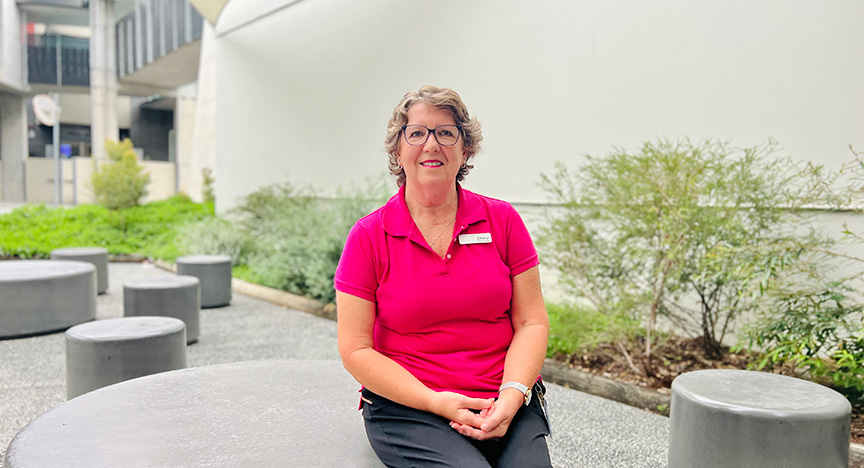
For Cheryl Austin, Clinical Nurse and GATE Assessor, over 40 years of service to geriatrics shows there’s no place like home in the heart of Geriatric Medicine.
Cheryl has been at Princess Alexandra Hospital since her traineeship in 1978 with a four-year stint off to raise a family. After restarting the clock, the past 32 years of continuous service into the niche field of geriatrics saw her undertake various roles and responsibilities within the Geriatric Adult Rehab Unit (GARU) before taking on the role as an assessor for Geriatric Assessments for E-Health (GATE).
“I've always liked the geriatric patients and the rehabilitation side of things. Our job has definitely evolved over the years with the different models of care looking to expedite the care for geriatric patients,” she said.
As part of the GATE team Cheryl is responsible for assessing patients over the age of 65 for alternative care options to a hospital stay. Through this program, eligible patients are offered options to receive treatment in the community or in the home, helping them to maintain their independence for longer.
“I was there from the start when we got the recurrent funding for the program in 2007. We've developed a great program and I would call it our ‘one-stop shop’ for geriatric medicine.”
“The outcome for patients has been much better since we've started this program. We have been able to streamline the right services, at the right time for patients.
“It is helping those people that didn't need to go into nursing homes but were referred to aged care facilities due to limited knowledge of resources and accessibility,” she said. “We’re giving them more opportunities at living their normal lives while accessing treatment.”
Cheryl says that allowing patients to make their own decisions and to be involved in the decision-making process is crucial to the success of the program. Providing knowledge to the family and support persons and being there to guide and support helps to keep geriatric patients independent at home for longer.
It is not only the patients and their families that Cheryl educates, as she sees a new generation of nurses walking the halls of GARU.
“Many of our nursing staff have been here for decades, but we are seeing a new generation of nurses heading into geriatric medicine.”
“For me, it is important to encourage ongoing education as a foundation, for the benefit of patients and their families, but also the nurses and the care team who are actively working with new and improving models of care.
“To be able to provide support to a cohort of patients with a myriad of comorbidities such as cognition difficulties, multiple health conditions, and complicated pharmacy regimens, is a special skill that can take years to perfect.”
Thank you, Cheryl, for your ongoing commitment to geriatric care for 40 years!